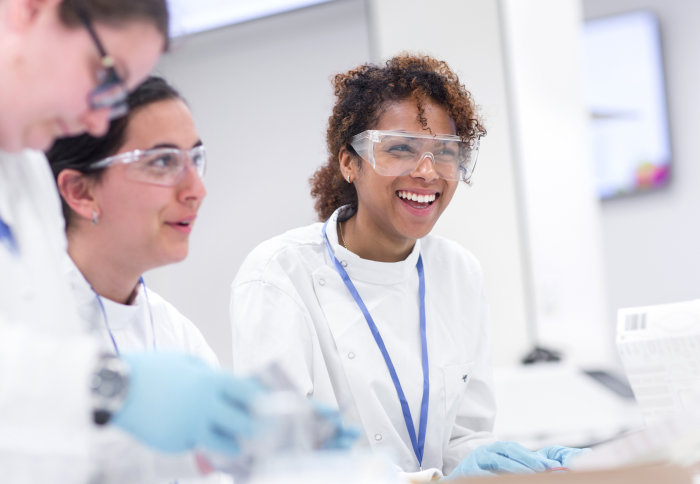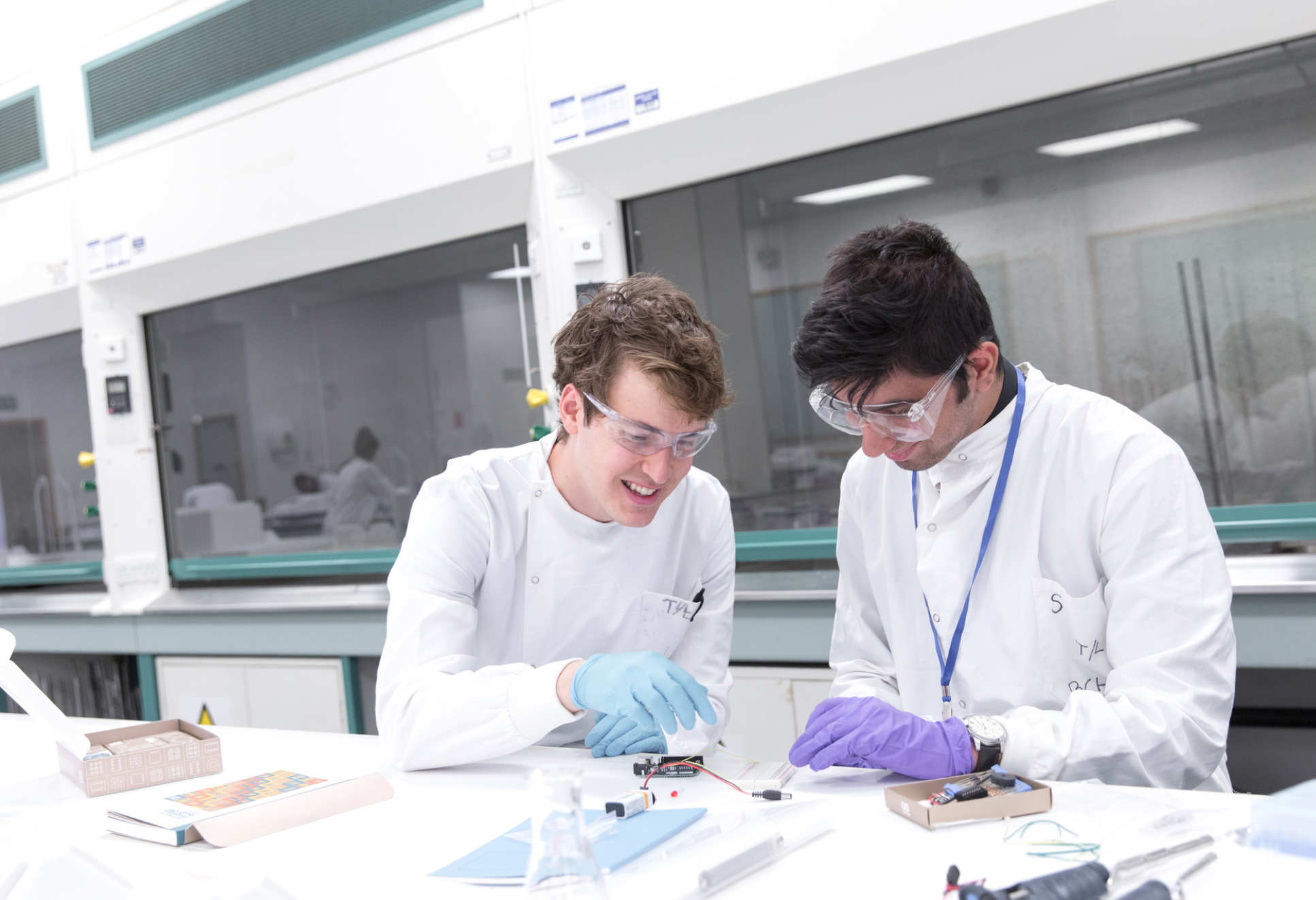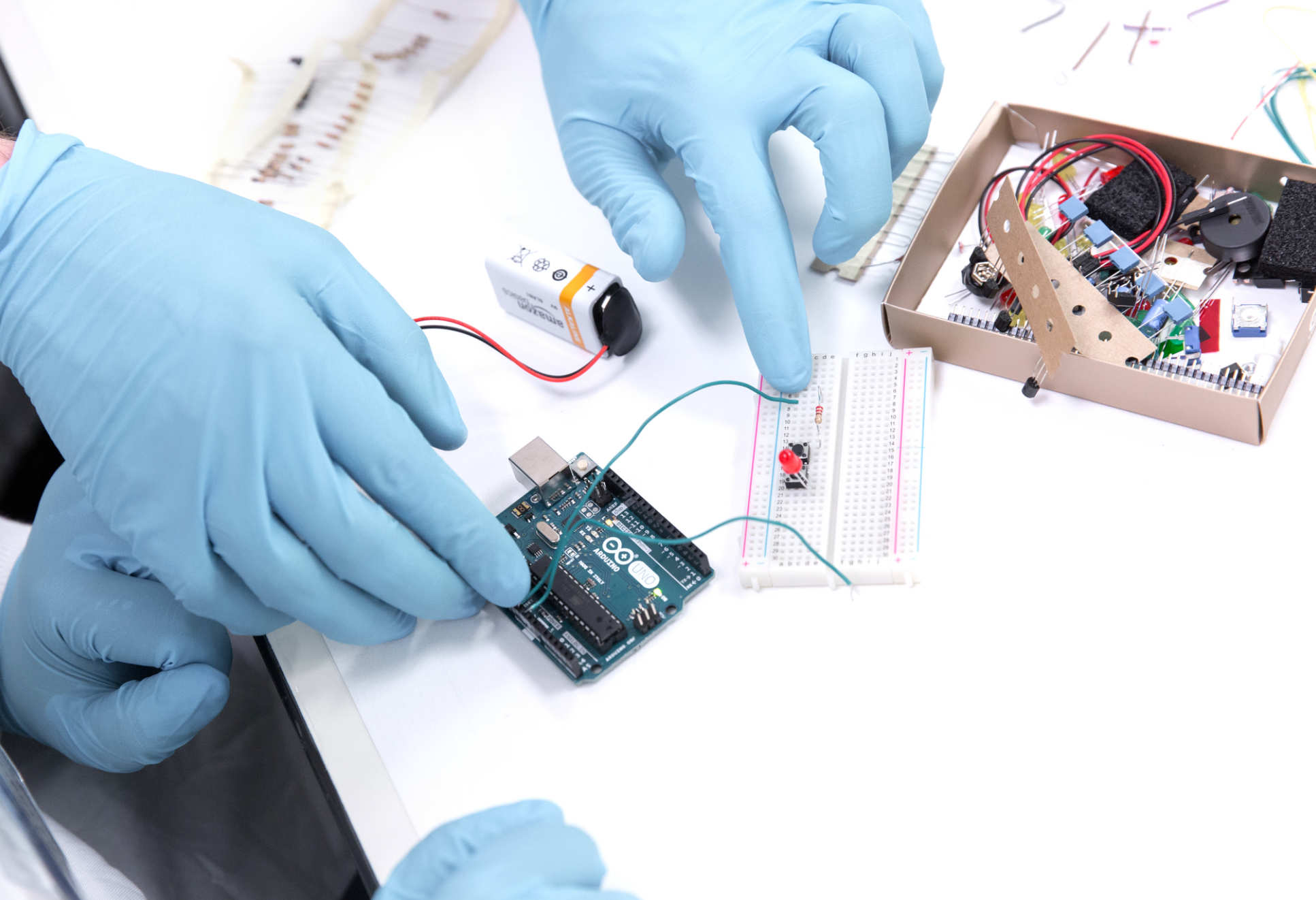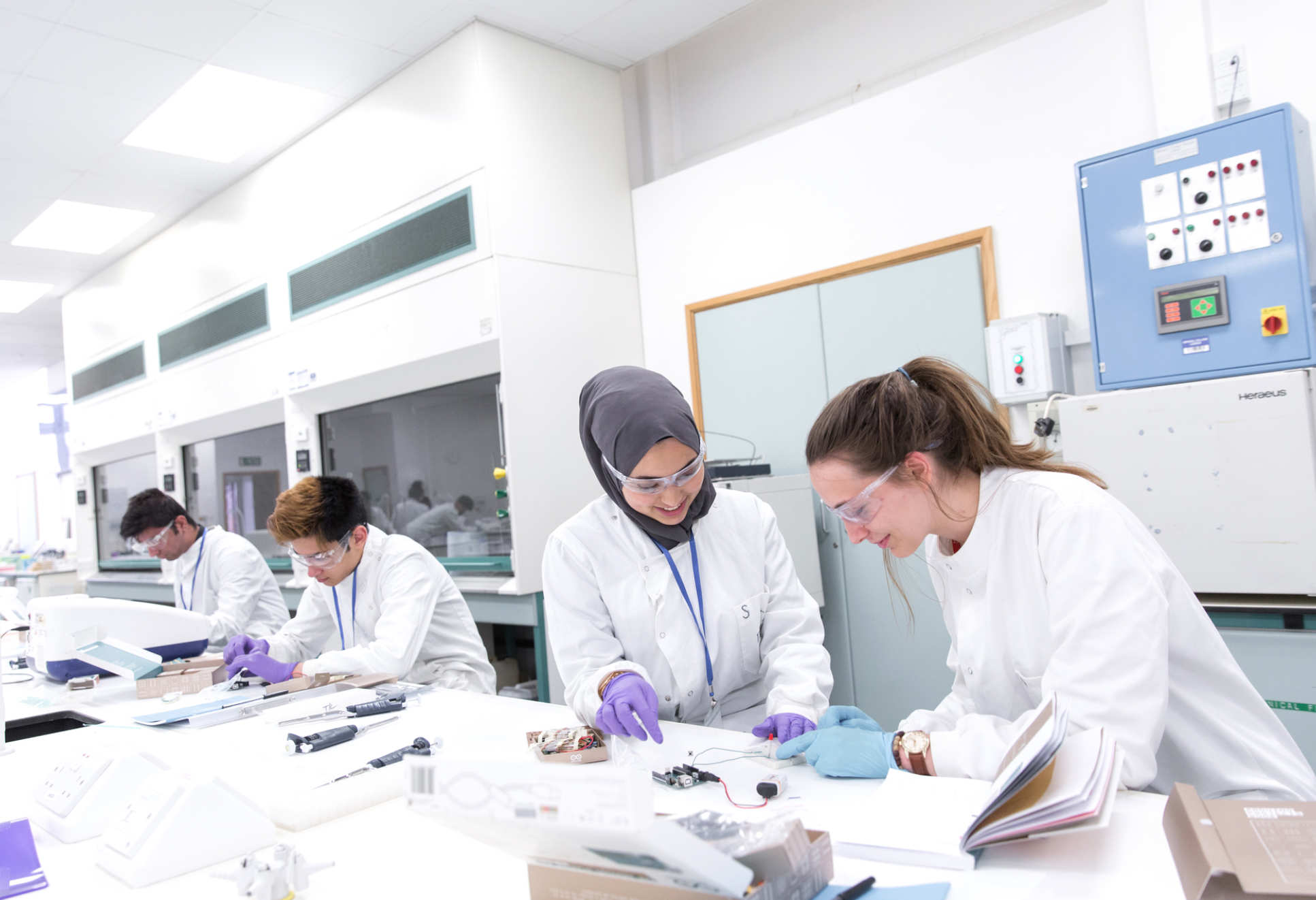US student inspires local sixth-formers thanks to Ambassador’s award

A student-led outreach initiative is giving London students the chance to conduct hands-on experiments at Imperial College London.
The BioPaint Initiative was organised by Niko McCarty, a research postgraduate who received a prestigious Fulbright scholarship to study at Imperial. Niko invited a group of sixth form students from mostly under-represented backgrounds to spend two days at Imperial taking part in biology workshops and finding out more about the College.
The initiative enabled the group of year 12 students to engineer living cells with glowing colours and taught them how electronics and computers can be used in the laboratory to enhance research efforts.

The group were tasked with building circuits to light an LED light, and then used an Arduino kit to construct a UV spectrometer in order to measure the density of E.coli cells. Students measured dilutions of bacteria and then engineered these with plasmids encoding fluorescent proteins, which they then ‘painted’ agar plates with.

The students also heard from Dr Ben Blount, Research Associate in the Department of Bioengineering, who spoke about genome synthesis and the synthetic yeast project.
Before coming to Imperial, Niko spent four years at the University of Iowa studying Biochemistry. Earlier this year, Niko won the Barzun Prize for Youth Engagement, being awarded $10,000 to run a local community project during his time in the UK.
We spoke to Niko to find out more about what inspired him to organise this initiative:
What is the aim of this workshop and what are the students doing today?
The aim is to expose students to the new field of synthetic biology and to learn how we can engineer living cells in a very similar way to how people engineer electrical circuits.
The students are using an Arduino to learn about and build an electrical circuit, and then will be able to use that Arduino to measure the growth of a bacterial solution by building their own UV spectrometer. They’ll also engineer their own cells using a similar set of instructions as the electrical circuits. They’re using basic, well-understood elements that can be brought together to build more complex devices.
What do you hope that the students will take away from this workshop?
I hope that the students learn how the things they’re being taught in their classes, like biology and genetics, are now being used for very real-world applications – to engineer living cells to improve things in our society, like manufacturing medicines, or to create environmental biosensors. There are all kinds of things that cells are being used for but unfortunately this aspect of engineering living cells is not taught in schools and I just want to show them where modern research is in engineering cells.

Why do you think it is important to organise outreach initiatives like this?
When I was in school and deciding to go to university, I had no idea what I wanted to do and I think most of that is because I really didn’t know what was out there. So I think getting students to do hands-on experiments and get away from lectures for a little while, to really be exposed to how things are done at the university level, is rewarding.
Hopefully this workshop tells them that this is something that they really didn’t know about but is really exciting and something they can get involved with as early as next year.
What have you learnt during your year at Imperial?
I really have learned so much at Imperial. I came from a biochemistry background and spent four years in a diabetes lab, doing a lot of cellular signalling, molecular signalling etc. and I didn’t know anything about bioengineering or engineering life. All of that effectively I have learned here at Imperial and it has completely changed my career trajectory.
I decided to do a PhD in bioengineering, as opposed to biochemistry, and I’m now more on the engineering road thanks to Imperial and the things that I’ve learned on this one year course. I feel a lot more confident about the decision I’m making.
So would you recommend studying in the UK to other American students?
I would definitely say that. I would also say that science is so international that even if you go to conferences in the US, you’re going to meet a lot of people from British, Chinese, German and Japanese labs. So if there’s somebody that is doing something exciting, it shouldn’t matter where they are, you should just be excited and you should go.
If you’re interested in synthetic biology, Imperial really is the best place in Europe. There’s people here that are doing things that are not being done anywhere else.
Article text (excluding photos or graphics) © Imperial College London.
Photos and graphics subject to third party copyright used with permission or © Imperial College London.
Reporter
Joanna Wilson
Communications Division
Thomas Angus [Photographer]
Communications Division